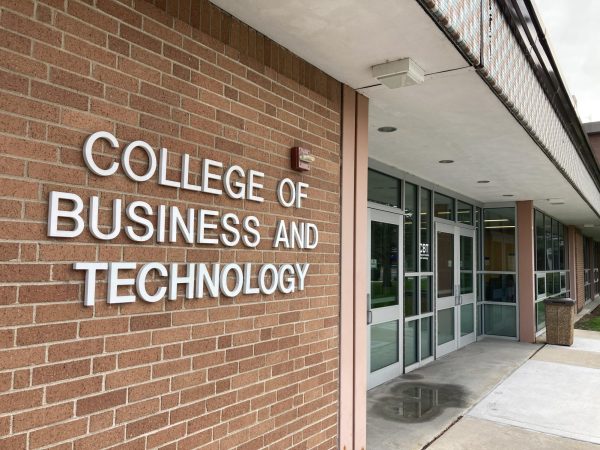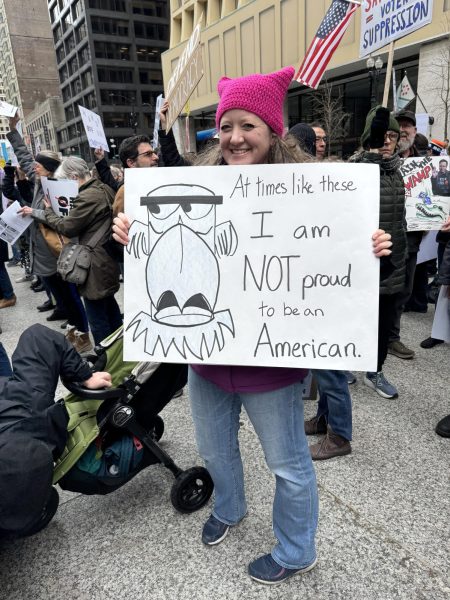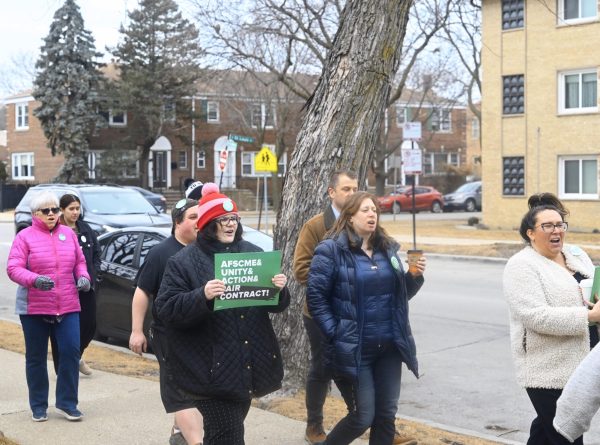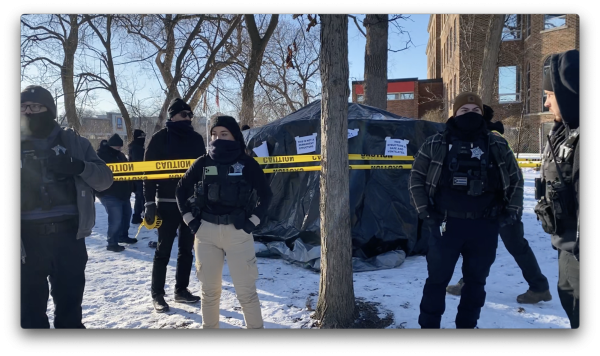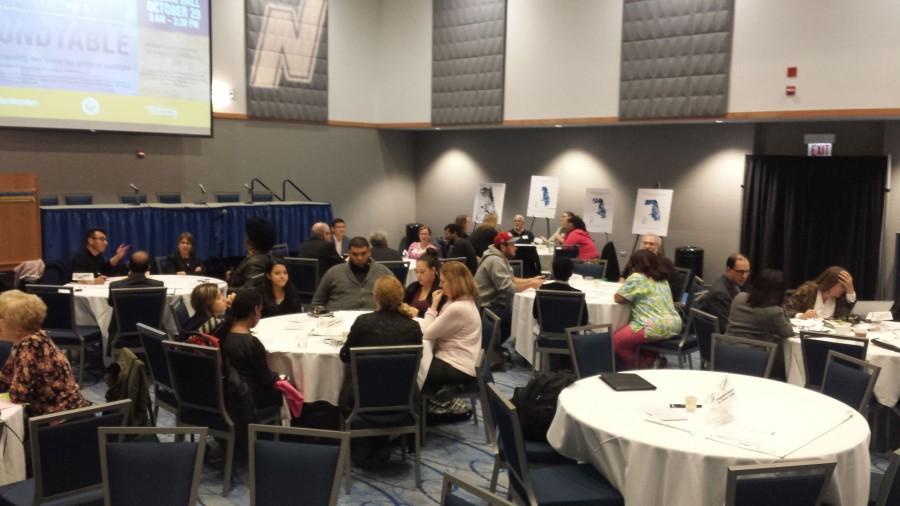Winds of Change: A Resounding Call for Revolution
More in News
Roundtable discussions heat up at the Economic Inequality Initiative event.
A diverse group of students and academics gathered at NEIU’s Alumni Hall to observe a series of panel speakers and to engage their peers in roundtable discussions.
The notion of revolution was a recurring theme — A revolution for adjunct educator rights; single-payer health care; a departure from institutionalized education; an end to domestic violence; an end to student hunger; a revolution for housing rights and public access to research, among many more.
Divided into morning and afternoon sessions, The Second Economic Inequality Initiative event, held on Oct. 29, was organized through a collaboration between the College of Arts and Sciences (CAS) and the Division of Student Affairs (DSA). The event served to encourage students to confront, through critical discussion, the roots of economic inequality — and to challenge students to adopt an active role addressing their solutions.
“The whole idea behind the initiative is to get students engaged and thinking,” said Kris Pierre, Senior Director of Academic and Community Partnerships.
During the afternoon’s roundtable discussions, one table of activists discussed economic disparity and hunger in students in K-12 and in college. As the day’s events were focused on action, the campaign to reduce growing hunger epidemics in children and college students was fueled by questions raised by attendees.
A general yet profound question they asked was: “How are students still hungry?”
One participant of the afternoon roundtable discussions chimed in. Though food pantries and other efforts to reduce hunger may be positive initiatives, the participant said, they may be “Just the Band-Aid on a bigger issue.”
Laura West, Student Academic Service Specialist in STEM, explained their table’s vision to engage the community and higher education in the identification of untapped and sustainable potential of natural areas. Collection and analysis of bio-indicator data in natural areas can be cost-effective and foster community cohesion, while providing a means for monitoring and reducing pollution and promoting safe, happy communities.
“Though many of these programs do exist,” West said. “Most programs are targeting K-12.”
Jason Olson, a psychology major, and Robert Fidis, a biology and chemistry double major with a minor in applied mathematics, said they both observed a rather underwhelming amount of student participation at many university events.
Both agreed that academic stress, added to any number of economic disparities stemming from inequality, could play a major role in a student’s motivation and, ultimately, their final decision to attend and participate. Busy schedules, among other priorities, may limit students enough to prevent them from acting to facilitate social change. A lack of hope, or looming college debts, are only some factors limiting the potential for student activism for equality.
Olson said he often notices students pass up events and opportunities to voice their opinions.
“They may not even disagree with the cause,” Olson said. “But how do we break down that wall? Because I’m pretty sure students do care.”
Three years ago, NEIU President Sharon Hahs challenged the College of Arts and Sciences and the Division of Student Affairs to identify and implement an innovative way to engage students and to give back to the community.
“Our partnership grew kind of organically,” said Dr. Katrina Bell-Jordan, Associate Dean of the CAS. “Food kept coming to the table.”
This year’s Economic Inequality Initiative event offered the NEIU community and its partners an opportunity to promote social, economic, environmental and humanitarian change. Actions triggered by the conversations at the Economic Inequality Initiative Event represented a complex web of interrelated efforts of relentless educators and academics, whom collectively strive to promote a brighter future, for the greater good.
Your donation will support the student journalists of Northeastern Illinois University's The Independent, either in writers' payment, additional supplies and other items of note. Your contribution will allow us to purchase additional equipment for writers/photographers/illustrators and cover our annual website hosting costs.
Kate Hilliard



